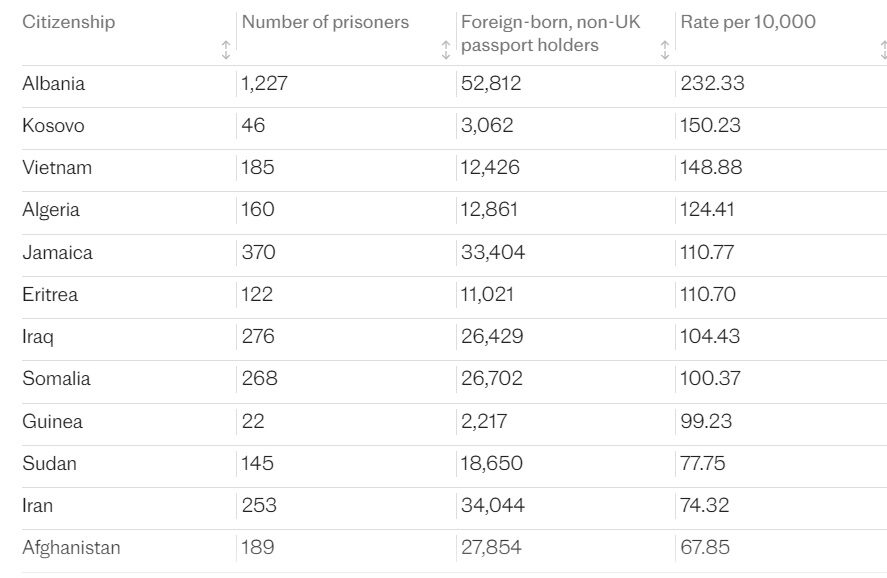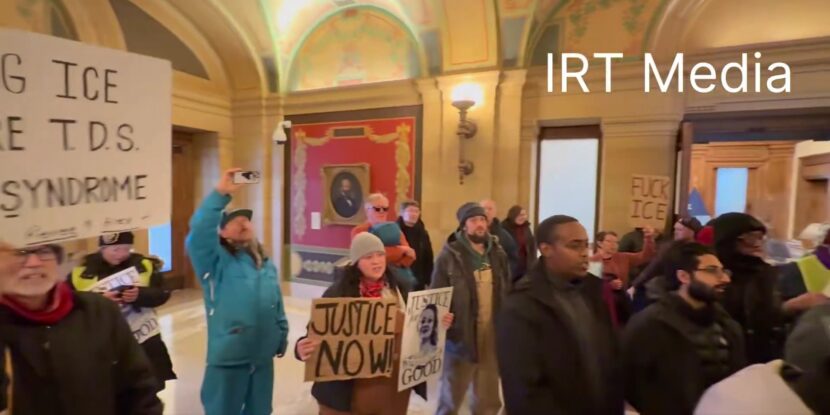Analysis has revealed the highest imprisonment rate amongst all migrant backgrounds in Britain is among Albanians, reaching 232.33 per 10,000, or approximately two percent of their population in the UK. The incarceration rate among British nationals is a comparatively low 14.27 per 100,000, while the incarceration rate among Americans in Britain is just 7.27 per 100,000.
The lowest offenders include Germans, Italians, Indians, Greeks, and Americans.

The analysis, based on Ministry of Justice (MOJ) figures checked against official census data, likely underestimates the Albanian population due to uncounted illegal migrants, including more than 12,000 who crossed to Britain in small boats in 2022. Following Albanians, Kosovans—most of whom are ethnically Albanian—have the second-highest incarceration rate, at 150.23 per 10,000.
Vietnamese, Algerians, Jamaicans, Eritreans, Iraqis, and Somalis are also high on the list, with all of these nationalities having over one percent of their resident populations in prison.
Afghans and Syrians–allowed into Britain in substantial numbers following the Taliban takeover of Afghanistan and years of war in Syria–are also significantly more likely to be imprisoned than British nationals, with incarceration rates of 67.85 per 100,000 and 32.82 per 100,000, respectively. However, Ukrainians have a lower imprisonment rate than Britons, with 12.75 per 100,000 people imprisoned. The Russian incarceration rate is similar, at 12.26 per 100,000.
COVER-UP.
Commenting on the analysis, Conservative lawmaker Neil O’Brien observed: “[T]he migration debate is hampered by a lack of data which the Government could easily publish but chooses not to.”
For instance, “The Home Office”—roughly equivalent to the U.S. Department of Homeland Security (DHS)—”knows the immigration status of prisoners and whether they were here legally or illegally, but it does not publish this. It knows about the offending history of overseas nationals in our prisons and whether they are committing multiple offenses, but it does not publish this.”
O’Brien argues it is “shameful that the Government refuses to publish so much of the information which it holds about this subject. It should be available to the public so we can have an informed debate.”





















